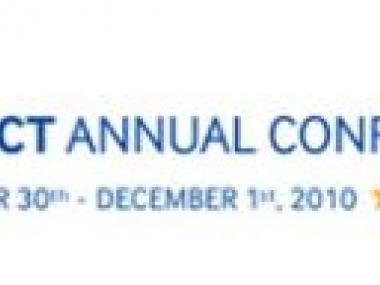A rich 2010 URBACT Annual Conference!
Edited on
09 October 2017Issues such as the economic downturn, urban renewal, social housing in a former prison, European acculturation, the Bicycle Festival, private sector involvement and more were covered. Three hundred and sixty participants attended the URBACT Annual Conference, held from 30 November to 1 December in Liege, Belgium. It was rich with discussions, ideas and debates. For those who could not make it due to bad weather—and for the others—here is a selection of what we heard in Liège.

Johannes HAHN, European Commissioner for European Policy 
"The challenge of democracy could very well play out in cities."
"Brussels is a good example of the paradox that often affects European cities. On one hand, it is classified among the cities that contribute the most to the state's wealth, and on the other it is confronting a high level of social exclusion, an impressive unemployment level, illiteracy, etc. So many problems that are shameful at this time in our European history."
Watch Mr Picqué's speech in French during the Opening Plenary Session on URBACT video channel.
Joseph POSTRANECKY, URBACT Monitoring Committee
![]() Results-of-the-URBACT-Cafe.pdf
Results-of-the-URBACT-Cafe.pdf
A business incubator in a former prison
Claudio FANTONI, the City of Florence, Italy Discover the conclusions of all the workshops held during the two-day conference focussing on innovation in the city, metropolitan governance, active integration, etc. .
Discover the conclusions of all the workshops held during the two-day conference focussing on innovation in the city, metropolitan governance, active integration, etc. .
"It must be sexy to go by cycle"
Dr. Wolfgang FISCHER, University of Graz, Austria
"The p
"This study effectively shows that cities do not yet know what they really want to do. They are not supplying solutions, but ideas on how to advance. The value of URBACT lies in enabling this exchange."
Mr Giuseppe RAAPHORST, Managing Director Social Development, Rotterdam (The Netherlands)
"In Rotterdam, we fear that if young people do not work for two or three years that it becomes very difficult for them to return to the job market. As a result, we are implementing a strategy to keep them busy by giving them additional training, for example."
Mr Kaarel-Mati HALLA,Director of the Strategic Development, Talinn (Estonia)
"In our city, we have 30,000 people unemployed out of a population of 410,000. Half of them receive no aid from the national unemployment fund. They are facing difficulties paying back their home loans and could become homeless. In 2009, the city launched a 'package' with 42 measures to face the downturn, with a budget of about 20M euros for two years. It has already enable the creation of 2,000 jobs."
Watch the plenary session and discussion "URBACT cities facing the crisis" on URBACT video channel: Part 1 and Part 2.
But the URBACT Conference was also the opportunity for hundreds of people involved in cities in the field to share their convictions and their experience in a lively and informal way. This took place at the friendly "ice-breaking dinner", which was held at the Liège provincial palace. It took also place in the space dedicated to stands for URBACT projects, with speakers involved and a profusion of documents. And it took place during the breaks that took place throughout the day.
<img data-cke-saved-src="uploads/RTEmagicC_abce43d205.jpg.jpg" src="uploads/RTEmagicC_abce43d205.jpg.jpg" width="160" height="106" alt=" /> Videos of the URBACT Annual Conference - URBACT Channel on Dailymotion
- Thematic Workshops & URBACT Café Reports - URBACT website
Submitted by admin on




